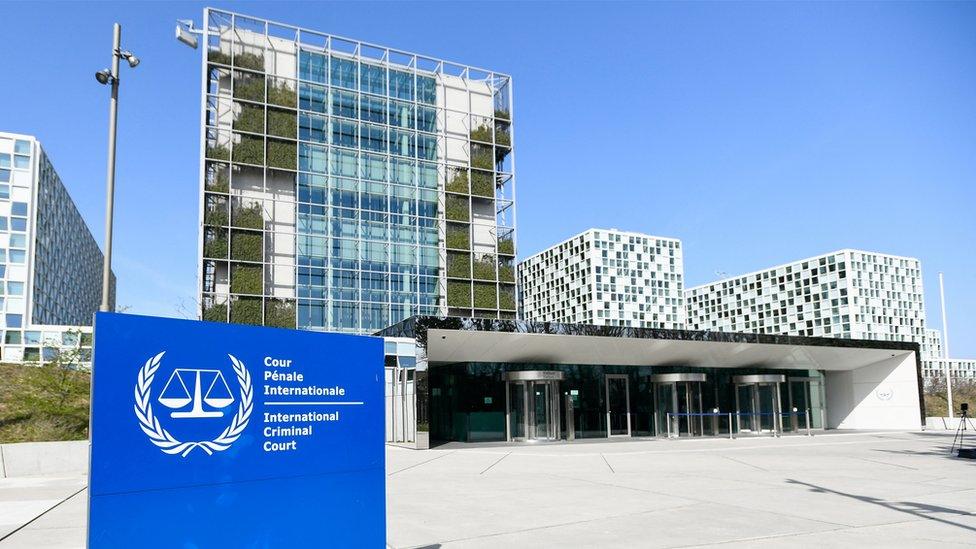Will ICC membership help or hinder the Palestinians' cause?
- Published
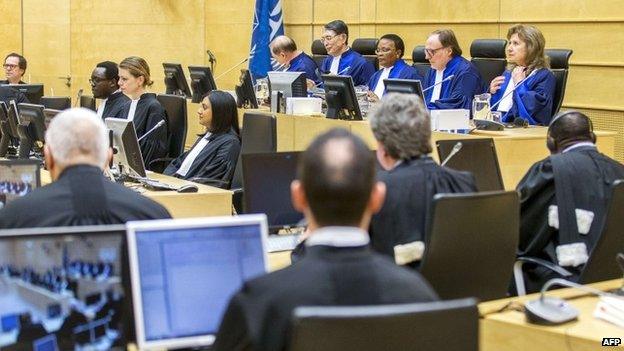
The Palestinians have formally joined the International Criminal Court (ICC) - a key step towards being able to pursue Israel for alleged war crimes. However, the move could backfire by raising tensions with Israel and the United States - and risks exposing Palestinian officials to war crimes charges themselves.
Why do the Palestinians want to join the ICC?
Palestinian leaders say they are pursuing a new strategy to put pressure on Israel after decades of armed struggle and on-and-off peace talks failed to end the Israeli-Palestinian conflict. They describe it as "internationalising" the issue.
Palestinian Authority President Mahmoud Abbas signed, external the Rome Statute, the ICC's founding treaty, and other international agreements after the UN Security Council rejected a Palestinian-drafted resolution demanding "a full and phased withdrawal of the Israeli occupying forces" within three years. President Abbas hopes bold actions will improve his standing with a deeply frustrated Palestinian public.

What does membership of the ICC mean?
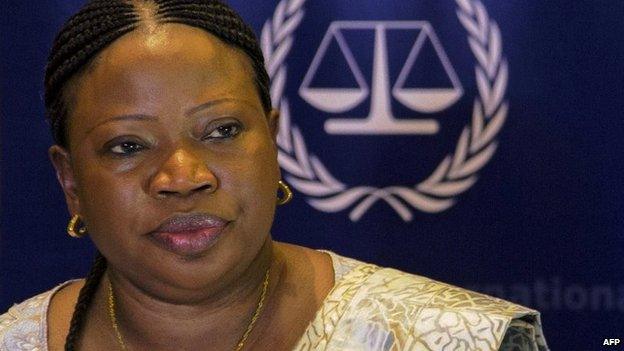
The ICC's chief prosecutor, Fatou Bensouda launched a "preliminary examination" in January
The Hague-based court deals with war crimes, crimes against humanity and genocide.
The Palestinians have asked it to exercise jurisdiction over any crimes committed in the occupied territories of East Jerusalem, the West Bank and Gaza from 13 June 2014. This covers events prior to and during last summer's conflict between Israel and militants in Gaza.
Israeli forces began a mass round-up of Palestinians on 13 June as they hunted for three Jewish teenagers who had gone missing in the West Bank the day before. The teenagers had been abducted and murdered by Hamas members. The period includes the abduction and murder of a 16-year-old Palestinian in Jerusalem by Jewish extremists acting in revenge for the killings of the Jewish teenagers.
Israel, like the US, is not a party to the Rome Statute. But in theory, its nationals could be tried by the ICC for alleged crimes committed on Palestinian territory.
In mid-January, ICC chief prosecutor Fatou Bensouda announced, external that she had opened a preliminary examination to determine whether the criteria have been met to merit pursuing a formal investigation.

What legal action do the Palestinians want to take against Israel?
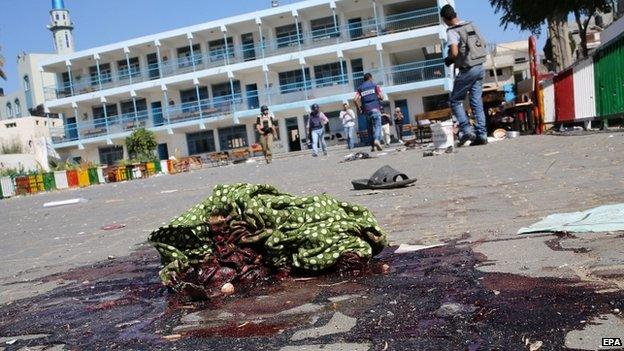
The Palestinians have accused Israel of committing war crimes during last summer's Gaza conflict
The Palestinians believe some Israeli military actions in Gaza last July and August amounted to war crimes. During the 50-day conflict, more than 2,100 Palestinians were killed - most of them civilians, according to the UN - and tens of thousands of homes in Gaza were destroyed or badly damaged. On the Israeli side, 67 soldiers and six civilians were killed.
Action is also planned by the Palestinians against the expansion of Israel's settlements in the West Bank and East Jerusalem - land it has occupied since the 1967 Middle East war. Article 8, external of the Rome Statute says the unlawful deportation, transfer or confinement of protected persons - those living in territory which is under military occupation - constitute a war crime.
The Palestinians want to establish an independent state on the boundaries that existed before the 1967 war in the West Bank and Gaza, with East Jerusalem as its capital, and they see recourse to the courts as a way of diplomatically isolating and increasing pressure on Israel.
However, experts say only the ICC's chief prosecutor and in some instance its judges have the authority to decide what cases to pursue for investigation.

Is there are risk for Palestinians?
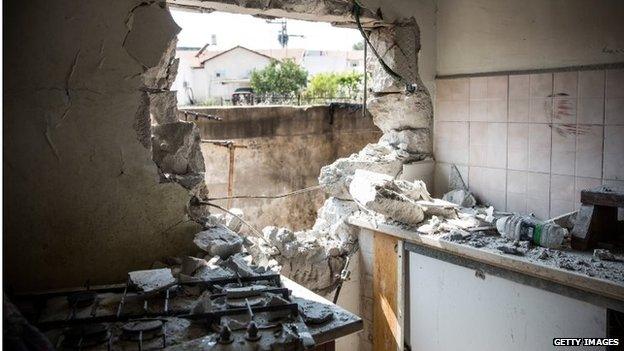
The ICC could prosecute Palestinians for indiscriminately firing rockets at Israeli civilian areas
Yes. While the Palestinian Islamist movement, Hamas, officially supported joining the ICC, its leaders could face charges of ordering indiscriminate attacks against civilians when the ICC prosecutor considers the recent Gaza conflict.
Militants from Hamas and other groups fired thousands of rockets and mortars at Israeli towns and cities. Israel, for its part, carried out hundreds of air strikes in Gaza and launched a ground offensive.
Israel's government is expected to use third-party NGOs to pursue their own complaints against Palestinians in the ICC. Already, Shurat HaDin, an Israeli human rights group, has formally asked the ICC to investigate alleged war crimes committed by Palestinian leaders.
Human Rights Watch: Palestinian rockets 'indiscriminate', external

How did Israel react to the Palestinians' membership application?
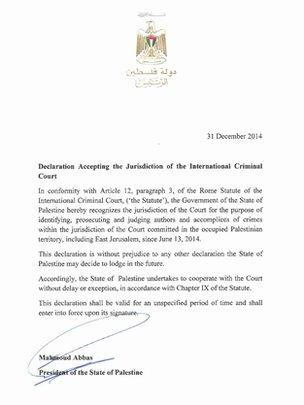
Palestinian application to join the ICC
Israel and the US object to what they see as unilateral approaches by the Palestinians to international bodies. They say they undermine chances for a negotiated peace deal.
When Palestinian leaders applied to join the ICC, Israeli Prime Minister Benjamin Netanyahu said they had chosen "a path of confrontation" and that Israel would "not sit idly by".
The Israeli government's first punitive move was to stop the transfer of about $400m (£270m) in tax revenues collected on behalf of the Palestinian Authority (PA) between January and March 2015.
The Palestinian chief negotiator, Saeb Erekat, called this an act of "piracy". As a result, 160,000 Palestinian government employees were paid only 60% of their salaries for three months.
Israeli officials have threatened to take more measures. One official said the government was looking into large-scale prosecution of PA leaders in the US and elsewhere. Israel argues that the heads of the PA in the occupied West Bank are collaborators with Hamas, which dominates Gaza, since they agreed a unity deal last April. Israel regards Hamas as a terrorist organisation.
Many Israeli politicians worry that international pressure is moving in the Palestinians' favour.

What about Washington's response?
The US was firmly opposed to the Palestinians' move at the ICC. The state department said it does not believe Palestine is a sovereign state, external and therefore should not qualify to join.
Washington is the second biggest donor to the PA after the European Union, giving $400m (£265m) each year. Under US law, this support will be cut if the Palestinians press claims against Israel at the ICC.
Despite the potential financial cost, President Abbas appears undeterred. As well as joining the ICC, he has said he is ready to return "again and again" to the UN Security Council seeking support for a resolution that sets a deadline for the creation of an independent Palestinian state.
Palestinian officials know that if they can get nine votes from the 15-member Security Council, the US will be forced to use its veto power. They suggest this will show Washington cannot be an effective broker for peace talks because of its unwavering support for Israel.

What are the possible implications for the ICC?
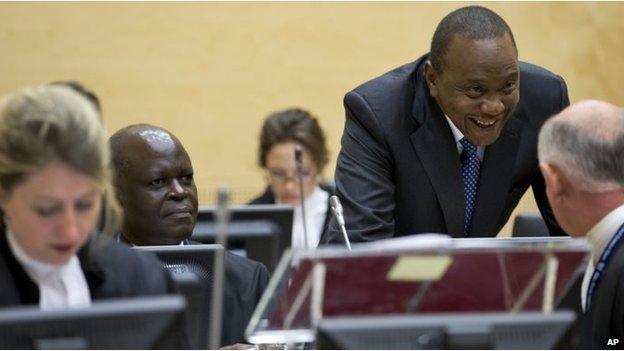
The ICC recently suffered a setback when it dropped charges against Kenyan President Uhuru Kenyatta
There would be a very high risk for the court in getting involved in the Israeli-Palestinian conflict.
Some legal commentators suggest that it would open itself up to charges of politicization and set itself up for another damaging failure.
But others suggest this could be a chance to restore credibility to the court, which has recently suffered serious setbacks.
In December, the ICC dropped charges against Kenyan President Uhuru Kenyatta for allegedly orchestrating violence in 2007-08.
It also formally suspended its war crimes investigation in Sudan's Darfur region because of a lack of backing from the UN Security Council.
- Published26 June 2023
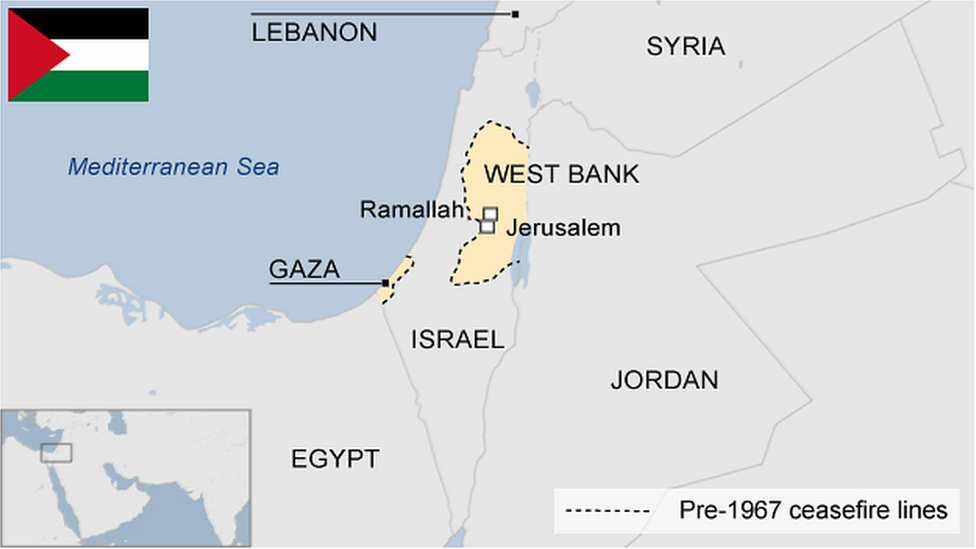
- Published13 October 2023
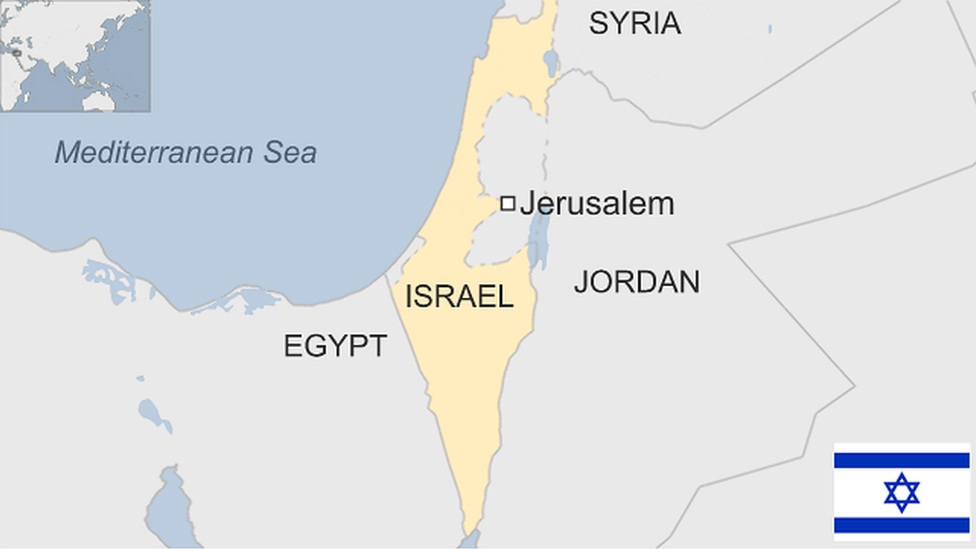
- Published7 February
